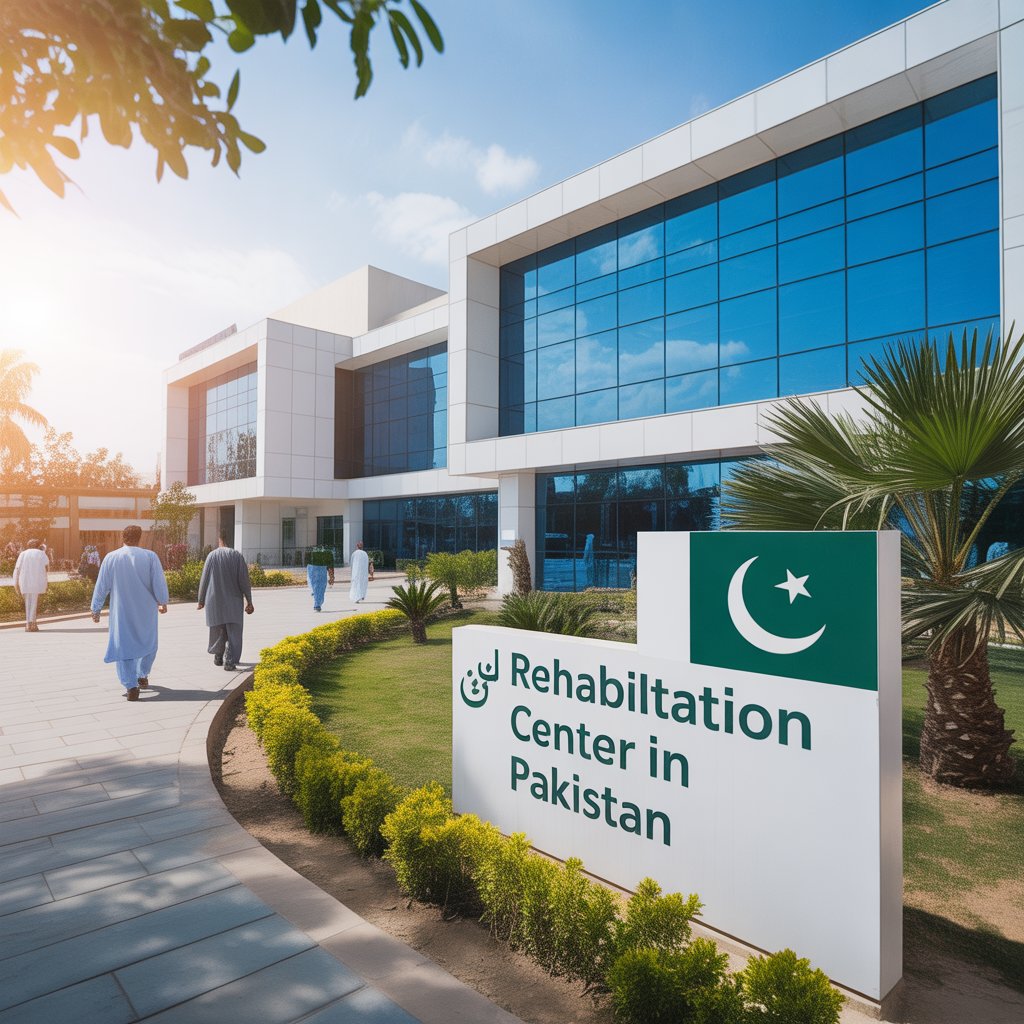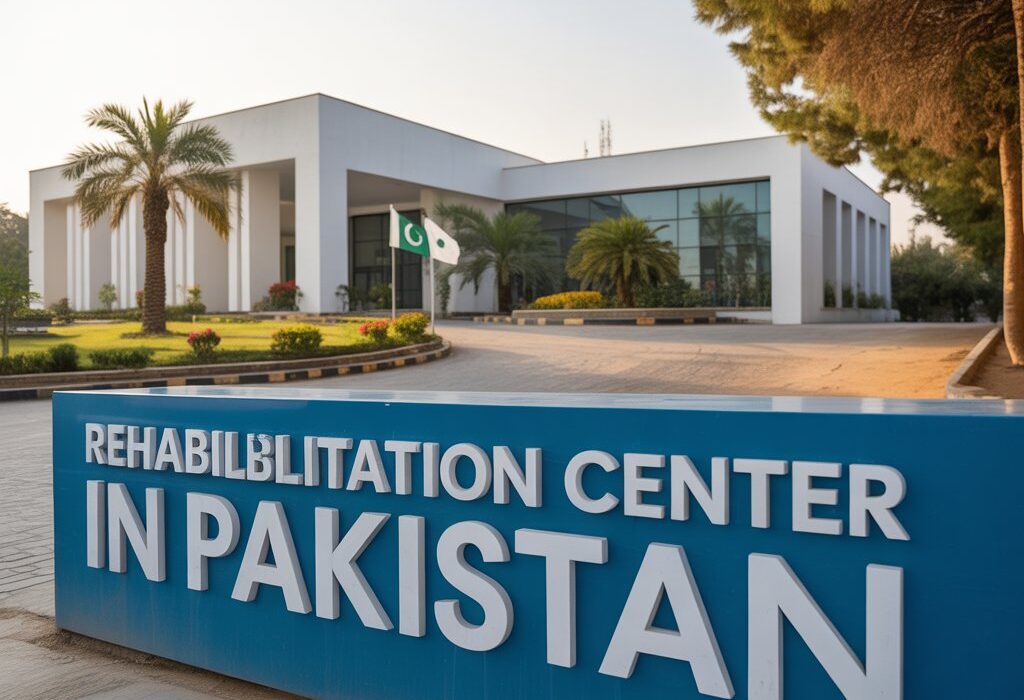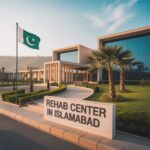Finding Hope: Your Guide to a Rehabilitation Center in Pakistan
When facing addiction, mental health challenges, or the aftermath of a traumatic injury, the journey to recovery can feel overwhelming. For individuals and families across the nation, seeking professional support is the most courageous first step one can take. This is where the role of a professional rehabilitation center in Pakistan becomes invaluable. These dedicated facilities provide a structured, compassionate, and scientific path to healing, offering a beacon of hope for those struggling to reclaim their health, independence, and quality of life. Understanding the comprehensive services and compassionate care available at a modern rehabilitation center in Pakistan can empower individuals to make an informed decision for their wellbeing.
What is a Rehabilitation Center?
A rehabilitation center in Pakistan is a specialized healthcare facility designed to help individuals recover from a wide range of physical and psychological conditions. Unlike a general hospital that focuses on acute medical crises, a rehab center offers long-term, holistic care aimed at restoring function and promoting independence. The core philosophy is to treat the whole person—addressing not just the symptoms but the underlying causes and the overall impact on a person’s life. These centers are staffed by multidisciplinary teams of doctors, therapists, and counselors who work together to create personalized treatment plans.
The Multifaceted Services Offered
The best rehabilitation center in Pakistan provides an integrated continuum of care, recognizing that recovery is a multi-stage process. Key services typically include:
1. Medical Detoxification
For those overcoming substance use disorders, the first step is often a safe and medically supervised detox. This process managed by healthcare professionals, helps individuals cleanse their bodies of addictive substances while managing potentially dangerous withdrawal symptoms in a controlled environment. Patient comfort and safety are prioritized throughout this challenging phase.
2. Therapeutic Interventions
The psychological core of rehabilitation is addressed through various evidence-based therapies. Individual counseling sessions, such as Cognitive Behavioral Therapy (CBT), help patients identify and change negative thought patterns and behaviors. Furthermore, group therapy provides a powerful sense of community and shared experience, reducing the isolation that often accompanies addiction and mental health issues. Family therapy is also crucial, as it heals relational wounds and builds a robust support system for the patient’s return home.
3. Physical and Occupational Rehabilitation
For patients recovering from strokes, accidents, or surgeries, physical therapy is essential for regaining mobility, strength, and coordination. Simultaneously, occupational therapy focuses on helping individuals relearn essential daily activities—such as dressing, eating, and grooming—to foster greater self-sufficiency and confidence.
4. Aftercare and Relapse Prevention
A high-quality rehabilitation center in Pakistan understands that recovery does not end at discharge. A comprehensive aftercare plan is vital for long-term success. This includes ongoing outpatient counseling, connections to local support groups, and alumni programs that provide continued encouragement and accountability.

Choosing the Right Facility: Key Considerations
Selecting the appropriate rehab center is a critical decision. Here are important factors to consider:
- Accreditation and Staff Qualifications: Ensure the facility employs licensed and experienced professionals, including psychiatrists, clinical psychologists, and certified addiction counselors.
- Treatment Philosophy and Methods: Look for a center that uses scientifically-backed therapies and offers a program tailored to individual needs, rather than a one-size-fits-all approach.
- Environment and Amenities: A clean, safe, and supportive environment can significantly enhance the healing process. Many centers offer peaceful settings conducive to reflection and recovery.
- Family Involvement: Programs that actively include family members in the therapeutic process tend to have better long-term outcomes, as they help rebuild a healthy home environment.
A New Beginning Awaits
Admitting the need for help requires immense strength. A reputable rehabilitation center provides the tools, guidance, and community necessary to build a foundation for lasting recovery. By offering a blend of medical expertise, psychological support, and compassionate care, these facilities guide individuals from a place of struggle to one of hope and renewed purpose. Taking the step to enter a professional rehabilitation center in Pakistan is not a sign of weakness, but a powerful commitment to a healthier, brighter future.
Frequently Asked Questions (FAQs)
1. What is the typical duration of a rehabilitation program?
The duration varies based on individual needs, ranging from short-term (28-30 days) for intensive programs to long-term (90 days or more) for more complex cases. The treatment plan is always personalized.
2. Do rehabilitation centers in Pakistan treat mental health issues?
Yes, modern rehabilitation centers offer dual diagnosis treatment, addressing both substance use disorders and co-occurring mental health conditions like depression, anxiety, or PTSD simultaneously.
3. Is family involvement encouraged during treatment?
Absolutely. Family therapy and education are key components of successful recovery, helping to heal relationships and create a strong, understanding support system for when the patient returns home.
4. What happens after the inpatient program ends?
A robust aftercare plan is developed, which includes outpatient follow-ups, support group referrals, and relapse prevention strategies to help maintain long-term sobriety and mental wellness.
5. How do I know if a rehabilitation center is reputable?
Look for centers with qualified staff, transparent treatment methods, positive patient testimonials, and a clean, professional facility. It is always advisable to schedule a visit and ask questions before making a decision.




